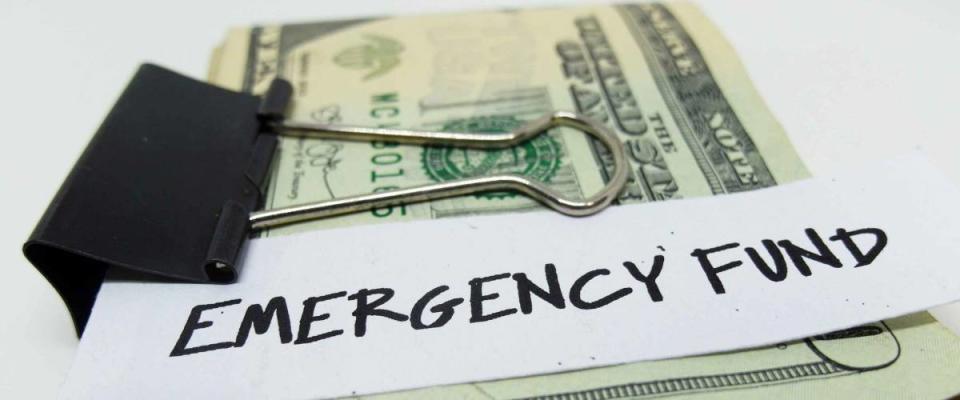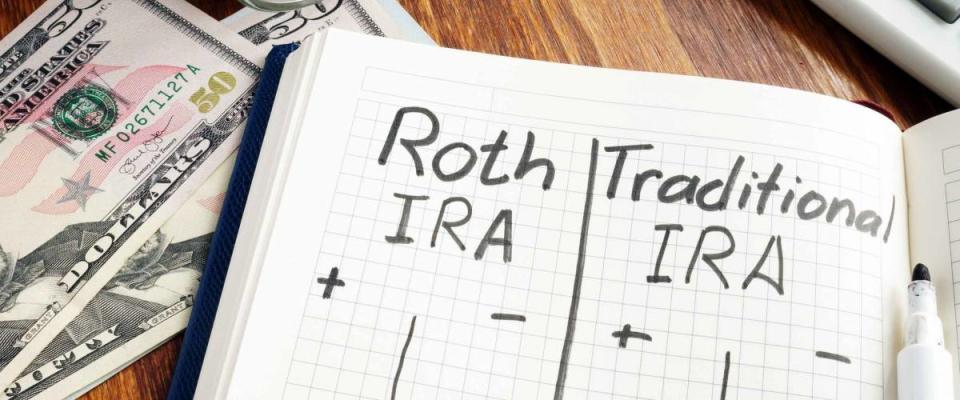Suze Orman's Money Tips to Help Your Finances Survive COVID-19

Personal finance author, TV personality and podcaster Suze Orman says with the coronavirus and its COVID-19 disease raging, now is one of those times you need to face adversity and fear and become a "warrior."
But the money guru says that's not easy, with jobs disappearing, hours being shortened, markets crashing and retirement balances shrinking.
Still, she says you just need try to look past the "now" and stay focused on your long-term financial goals.
Here are 12 money do's and don'ts from Orman, to help you survive the financial crisis accompanying the current health crisis.
1. Do put your bills on hold, if you can

See if some of your bills can be put off.
As the coronavirus financial crisis worsens, homeowners are getting a break from mortgage payments, some states and communities are protecting renters from being evicted, and Americans with student loans can stop payments for two months, interest-free.
"If you can’t pay your bills, or could really use some short-term relief, call anyone you owe money to and ask them what help is available," Orman says, in her "Women & Money" podcast.
Call your credit card issuers to find out what they can do for you, because some have suspended interest charges. "Are there long wait times on customer service lines? So what? You’ve got time," says the money maven.
Taking advantage of offers to put off bill payments shouldn't hurt your credit score, but check your score regularly — which you can do for free — just to be sure you're not getting dinged.
2. Don’t panic-sell your stocks

Don't be too hasty to sell stocks.
When the stock market's coronavirus crash began in February, Suze Orman's initial reaction was that investors should "rejoice," because they could buy great stocks at bargain-basement prices. She said the worst thing an investor could do was panic and sell shares.
Months later, with stocks much deeper in the cellar, Orman may not be rejoicing anymore. But she's still urging people to resist selling stocks, because she says patience will pay off.
"Could stocks keep going down? Of course," she writes, in an article on CNBC.com. "But since World War II, we have had 12 bear markets. The average loss was around 35%, and though stocks fell for an average of a bit more than a year, they typically had made back their losses in another two years and then rallied to new highs."
You might get some help fighting the temptation to sell by hiring an affordable financial adviser of your own. Those services are available online now — so don't worry about social distancing.
3. Do keep investing more money, if you can afford it

Try to maintain your investing.
Not only should you not sell stocks, but you also shouldn't stop putting more money in. "If you aren’t yet retired, now is not the time to stop investing. Focus on the long term," says Orman.
If you're making regular automatic transfers from your bank account into an investment account, or if you've got a portion of every paycheck going into a 401(k) or other retirement plan, just keep doing what you're doing.
"I can’t tell you when stocks will recover, but if you have time on your side, the focus should be on the fact that they will eventually recover," the personal finance expert writes, in the CNBC article.
If you are retired, she says you probably have at least half your portfolio invested in bonds, and you likely have a heap of cash investments, too. She says those accounts are "safe" and solid.
4. Don't keep too little in your emergency savings

Always have savings.
Right now it's probably very difficult to beef up your savings for emergencies, but Orman is hoping consumers will come away from these difficult times with a new determination to put aside even more money for when things get tough.
Most experts say you should have enough saved — maybe in a high-yield savings account — to cover three to six months' worth of expenses. Suze Orman says the coronavirus crash calls for a new standard: a three-year emergency fund.
She explained it this way, in a HerMoney podcast with personal finance expert Jean Chatzky: "In the last years a bear market [that is, a 20% decline in stocks] from where it goes from the top to the bottom, back to the top again is usually 3.1 years."
Orman says you need a financial cushion for a bear market because you don't want to be forced to sell stocks when markets are falling, and you don't want to raid your retirement money either. Doing that can trigger taxes and a stiff early withdrawal penalty.
5. Do be careful about making big purchases right now

Just because you can afford it doesn't mean you should buy it.
Even if you've got the money, now is not the time to be buying a new car or a new smartphone, Orman says.
“You want to cut your expenses, fine. But stop with major purchases right here and right now, because the future is unknown, and this is the time for you to conserve in every possible way,” she says, in her podcast.
The author and financial personality has put her own household under financial lockdown. "I have asked for absolute conservation of water, of electricity, of every possible thing," she says. "If the grass has to die, the grass is going to die. If your pool isn't heated, your pool isn't heated. Stop it, people.”
If you're determined to spend, you might pick up something really practical — like life insurance, to protect the people who depend on you. Orman has said term life insurance is "incredibly affordable." It's also very easy to buy.
6. Don't get carried away with online shopping

Don't go crazy shopping online while you're sitting at home.
With so many businesses shut down and with so many of us stuck inside, it might be tempting to combat cabin fever with some online retail therapy.
Suze Orman says resist those urges. "Stop acting like everything is OK and that you're continuing to spend, even though you're inside your home," she says in her podcast.
Before you decide online shopping will make you feel better about the current situation, consider some tough questions: "If you didn't make another penny for the next year or two, would you be absolutely, financially fine? Would you be able to pay all your bills? Would everything be OK?" Orman asks.
If you're bored, don't spend money on the internet but earn some free gift cards there instead, by joining a program called Swagbucks.
7. Do use credit cards, but use them wisely

Make minimum payments.
Though you want to keep your spending under control during this period of financial turmoil, it's all right to fall back on your credit cards if you find yourself in a bind.
"If you don’t have enough money in your emergency cash fund to cover expenses, use a credit card for essential purchases," Orman writes in the CNBC piece.
"But if you do this, do everything possible to pay the minimum due each month. Staying current — paying the minimum is fine during a crisis — is key to maintaining a good relationship with the card issuer," she says.
If find yourself relying on a credit card, try to use one with cash-back rewards, so you’re essentially saving money each time you use it.
8. Don't assume the job market will snap back to normal

Laid off? Your job may not be coming back, Suze Orman says.
Suze Orman has some sobering words for people who've been laid off because of the COVID-19 outbreak and are now sitting at home: Some of your jobs may not be coming back.
"Are we looking at a total change in the jobs that do come back, jobs that don't come back, and where those jobs are performed? Yeah, I think we absolutely are looking at a total revamping of how business goes on after this over," she said in her March 26 podcast.
So, work on your resume and try to learn some new skills during your downtime. See if you can pick up freelance or gig work that might lead to something bigger later on.
"I do not expect us to go back to business as usual," Orman warns.
9. Do be worried about a recession

A recession affects everybody.
Many economists say a coronavirus recession is on the way, if it's not already here. Orman says if the economy is going into decline, you need to be concerned, even if you're still holding on to your job.
"Why should recession matter to you? It matters to you because when something recedes, when it pulls back, everybody stops spending money. Jobs don't come back," she tells her podcast listeners.
She says that's something her driver knows all too well. He was thrown out of work in the last recession. “My driver used to have a $200,000 a year job back in 2007, and now he’s a driver, and he’s still a driver,” the money guru says.
So, get a side hustle, save as much as you can, and take other steps to protect yourself from a COVID-19 downturn.
10. Don't miss out on a chance to convert your IRA

Retirement investing tools to consider
With a traditional IRA, you make contributions to the retirement account from your pretax income. Withdrawals will be taxed as current income after age 59 ½. But with a Roth IRA, the money is taxed upfront, so withdrawals are often tax-free.
"Many of you have been wanting to convert from a traditional IRA to a Roth IRA," Orman says on her podcast. "If that is the case, when the markets are down significantly like this, this is the time."
The reason is that the amount you take from your traditional IRA and put into a Roth will be taxed as income.
"When the market is down, and stocks have gone down 50% so maybe, rather than having $20,000, you have $10,000 now," Orman explains. "So, when you convert, you would only owe taxes on $10,000."
11. Do put dividend-paying stocks in your portfolio

A company pays you a portion of their earnings.
Orman says the market crash is a good reminder of why you should have some dividend-paying stocks in your investment portfolio. Even when the market tanks, you'll still have some returns to show.
She says many good, quality stocks pay dividends. "There are so many out there that are paying 4.5%, 5% right now, that they've been crushed for no reason. Just because the market's gone down, they went down," she says, in her podcast.
The dividend yield is a company's annual dividend divided by its share price. If the business pays an annual dividend of $1 per share and its current stock price is $20, that's a dividend yield of 5%.
Dividends are usually paid out quarterly. So if you're invested in a company paying $1 per share annually and you have 1,000 shares, you receive $250 every three months that can be reinvested into the firm.
12. Don't confuse 'want' with 'need'

Save your money.
Now is one of those times when it's particularly important to understand what you need, as opposed to stuff you just want. It's a distinction that Suze Orman often talks about.
"I can afford a new car, but why would I want to waste money like that? Just because you have money doesn’t mean you should waste money. You should never waste money," she told Jean Chatzky, in the HerMoney podcast.
That's especially true at this moment, with layoffs mounting and incomes shrinking.
But still, "we are wasting so much money," Orman says. Going back to the car example, she says instead of buying a new one she'd rather spend $2,000 to fix up her current car.
